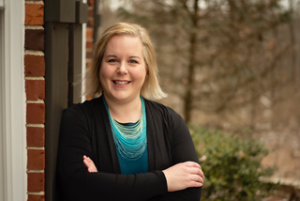We recently had the opportunity to catch up with Jennifer Probst, Vice President of Global Operations and Strategy at Conservation International (CI). Drawing from her extensive experience as a lead investigator addressing workplace conflicts, discrimination, harassment, and sexual harassment, Jennifer shares valuable insights into fostering a culture of respect and accountability within CI. She also discusses her own experience as a participant in the Investigator Qualification Training Scheme (IQTS) — a collaborative effort by CHS Alliance and Humentum designed to strengthen the global capacity to respond to SEAH allegations.
Seeking knowledge and deepening expertise
CI’s mission is centered on safeguarding nature for the well-being of humanity. In CI’s organizational guiding principles, they have similarly set forth a commitment to safeguarding against sexual exploitation, abuse, and harassment (SEAH). Seeking to expand her knowledge on SEAH investigations, Jennifer Probst recently participated in Tier 2 of IQTS.
IQTS equips individuals with the skills and knowledge to undertake survivor-centered investigations and makes this training more accessible to women and staff from resource-limited organizations in the global majority.


